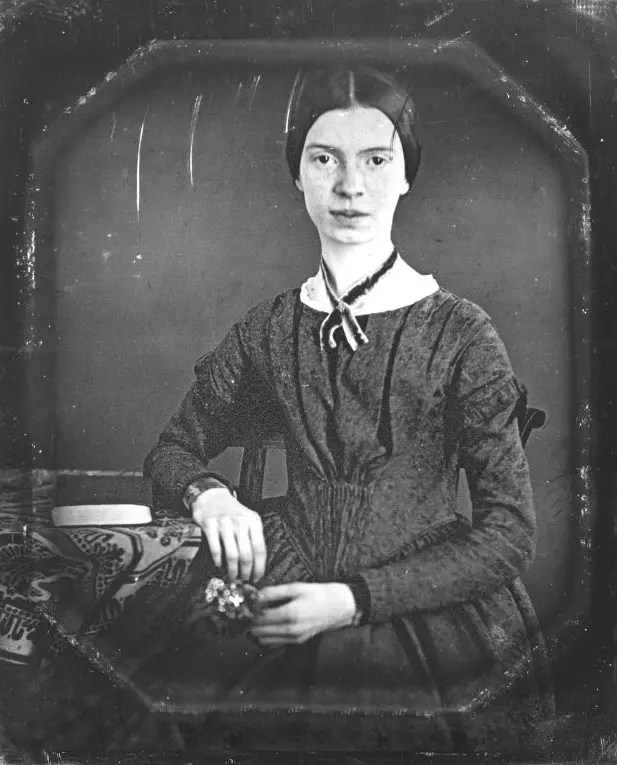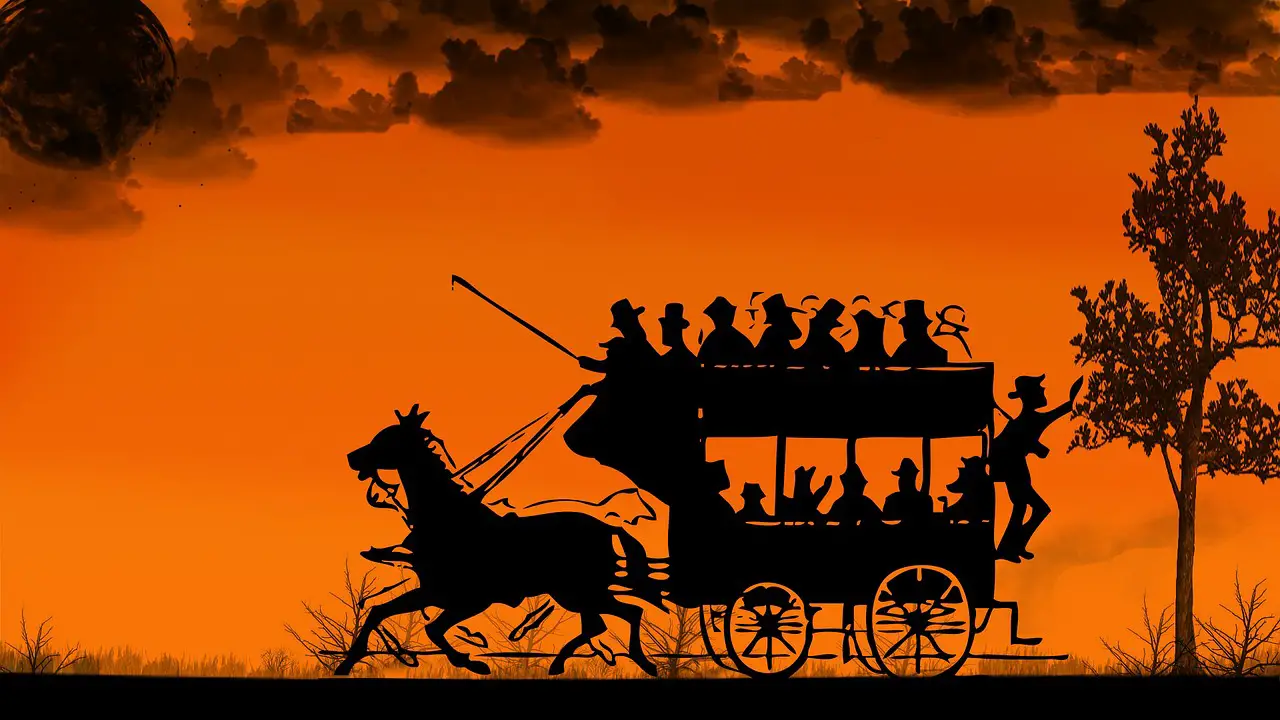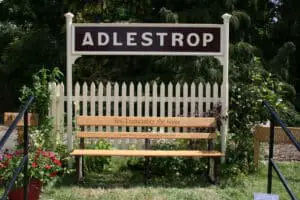
FULL POEM - SCROLL DOWN FOR LINE-BY-LINE ANALYSIS
Because I could not stop for Death –
He kindly stopped for me –
The Carriage held but just Ourselves –
And Immortality.
We slowly drove – He knew no haste
And I had put away
My labor and my leisure too,
For His Civility –
We passed the School, where Children strove
At Recess – in the Ring –
We passed the Fields of Gazing Grain –
We passed the Setting Sun –
Or rather – He passed Us –
The Dews drew quivering and Chill –
For only Gossamer, my Gown –
My Tippet – only Tulle –
We paused before a House that seemed
A Swelling of the Ground –
The Roof was scarcely visible –
The Cornice – in the Ground –
Since then – ’tis Centuries – and yet
Feels shorter than the Day
I first surmised the Horses’ Heads
Were toward Eternity –

LINE-BY-LINE ANALYSIS
STANZA 1
Because I could not stop for Death –
The first stanza begins In Media res (in the middle of the action – or her life in this case) suggesting that her death is unexpected and she’s still got so much left to do. Death is capitalised to create a character that is bringing death to her.
He kindly stopped for me –
This describes her accepting death, even being grateful for it.
The Carriage held but just Ourselves –
The imagery of the horse and carriage is one of civilisation, their seclusion in the carriage adds a sense of unexpected intimacy and romance.
And Immortality.
Dickinson is likely commenting on the foreverness of post-death here, which juxtaposes the current fragility of her life.
STANZA 2
We slowly drove – He knew no haste
And I had put away
My labor and my leisure too,
For His Civility –
STANZA 3
We passed the School, where Children strove
The youth of the children at the start of their lives juxtapose her at the end of hers.
At Recess – in the Ring –
The extra detail here, whilst it may seem unnecessary, adds realism which makes her impending death ever more real and threatening
We passed the Fields of Gazing Grain –
The ‘Grain’ is a symbol for life and sustaining life and as they pass the fields this sustenance for life is being neglected. The alliteration of ‘Gazing Grain’ is personification and emphasises the helplessness of the grains to help her.
We passed the Setting Sun –
This is a metaphor for her death – as the day comes to a close so does her life.
STANZA 4
Or rather – He passed Us –
Dickinson personifies the sun here, making it seem like the carriage is standing still and it’s the sun that’s moving. It adds uncertainty (maybe she’s questioning her acceptance of death) and standing still could symbolise her lack of future.
The Dews drew quivering and Chill –
The cold is a pathetic fallacy and suggests that she becomes fearful and less accepting of death
For only Gossamer, my Gown –
My Tippet – only Tulle –
She describes what she is wearing (a nightgown in 21st century English) as inadequate. She now feels underdressed with her companion, maybe her opinion of him as a kind gentleman has shifted? The delicacy of the materials is a metaphor for her own life.
STANZA 5
We paused before a House that seemed
The carriage holding her and death has reached its destination – a ‘House’, it doesn’t seem too bad yet despite the cold as a house is associated with warmth and comfort after all.
A Swelling of the Ground –
Now the tone shifts to one of disappointment and regret, this swelling described like a freshly dug grave does not sound like somewhere she’s content to stay after death.
The Roof was scarcely visible –
The Cornice – in the Ground –
Her disappointment at the house signifies her regret being lured into death by the kind gentleman. She feels cheated but it seems unlikely she can return to the living world.
STANZA 6
Since then – ’tis Centuries – and yet
The sixth stanza takes us to the present as she is reflecting on her death that occurred centuries ago.
Feels shorter than the Day
Her death feels like less than a day ago, it’s Dickinson’s unusual take on the phrase ‘time flies when your having fun’!
I first surmised the Horses’ Heads
Dickinson describes the ‘Horses’ Heads’ as pointing towards eternity like a signpost, suggesting that her life after death still has some direction and meaning. The alliteration and repetition of the ‘h’ sound is a soft, romantic sound indicating some content and maybe romance in her life after death.
Were toward Eternity –
Eternity is capitalised to emphasise the finality of infinite death. The final dash acts as a cliffhanger and uncertainty of those never-ending years.


